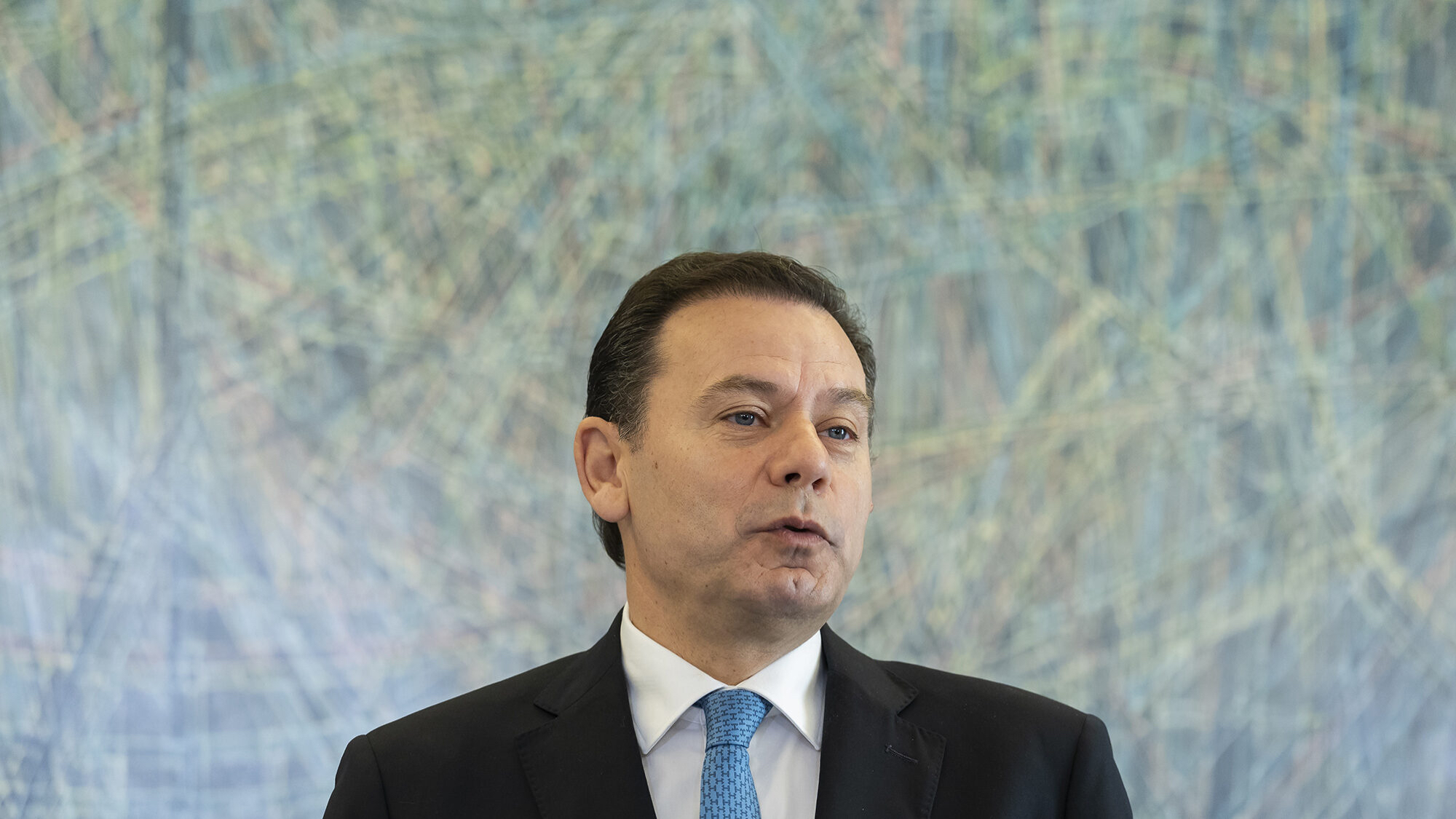Power outage delays factory orders and affects ‘reputation’
Monday's power failure in Portugal forced industry to halt production and many factories are already admitting delays in deliveries.
“A much bigger loss is the company’s reputation. We have customers who were waiting for orders at the end of the month and now we’re going to be eight days late,” says José Alexandre Oliveira, chairman of textile company Riopele, reacting to the power cut that left Portugal and its factories in the dark for 12 hours last Monday.
A stoppage that, in the case of Riopele, will turn into a 24-hour delay due to the replacement of machines. In a shorter week, because of the Labour Day holiday, companies admit to delays in deliveries, without accounting for the size of the financial losses. In addition to the problems caused by the power cut, the ‘blackout’ of the tax office website is complicating the issue of transport documents.
For the majority of factories, the general outage that hit the country on Monday resulted in a period of 12 hours of machine downtime, and an adittional 12 hours to resume full production. A stoppage that entails economic and reputational losses for companies, which have to manage deliveries with their customers that were scheduled and are now going to be cancelled.
“I’m ashamed that our country has this image”, laments José Alexandre Oliveira, questioning how it is possible that the country doesn’t have preventative tests to safeguard against a situation like this. “I’m afraid there won’t be a solution after two or three hours. Can you guarantee that this won’t happen again in the future? That’s the big problem”, criticises the entrepreneur.
Like Riopele, other companies in the textile and clothing sector were forced to stop. “At 2pm, the factories decided to suspend production and send people home. If there was no electricity, nothing worked”, César Araújo told ECO. Calvelex’s CEO admits that “there are always losses”, but at the moment “it’s impossible to quantify the impact on sales”, which are weakened by the downturn in consumption.
The same happened in the furniture and footwear sector, with the majority of the companies laying off their employees in the afternoon, in the face of the lack of answers about the restoration of power, the breakdowns in communications — which left families unable to contact each other — and, later, the water cuts.
“Most companies [in the footwear sector] shut down production in the afternoon”, said Paulo Gonçalves. According to the spokesman for APICCAPS, the Portuguese Association of Footwear, Components, Leather Goods and Leather Goods Manufacturers, “the question now is whether, in the coming weeks, we [the members] will make up for the hours lost [on Monday]”.
According to the same official, some companies have generators and photovoltaic panels, “which made it possible to contain some of the outage”, but “there were no conditions for a working day”. “From a certain point onwards, the problems were catastrophic”, he recognises, adding that the sector is now very close to normal: “The bulk of the problems have been resolved.”
One of the companies in the sector that was forced to ‘switch off’ its machines was Indústrias de Comércio de Calçado (ICC), which owns the Lavoro and No Risk brands. According to Teófilo Leite, chairman of the company’s board of directors, production “came to a complete halt” at the Guimarães plant, which is currently undergoing “an investment of five million euros, which includes not only the refurbishment of buildings, but also the inclusion of self-sufficient energy systems”. The Póvoa de Lanhoso factory, which has energy generation systems, continued to operate.
“The collapse of the electrical system, due to the lack of backup or redundant systems, is unacceptable in this day and age. In addition, there was a lack of timely information via radio, which would have allowed companies to make better decisions,” criticises Teófilo Leite, who says that the company has seen a drop in production of around 2,000 pairs. “There are no consequences for the fulfilment of orders, since the company has a continuous stock of 100,000 pairs”, says the industrialist of the Guimarães company, which employs 284 people and has a turnover of 22 million euros.
Without generators, All Around Shoes, which owns Mariano Shoes, with a factory in Oliveira de Azeméis with the capacity to produce 600,000 pairs of shoes a year, was unable to operate after the blackout, keeping people inside the premises to see if it was a normal power cut. “As we started to get some information that it was a general power cut and that it would take a while, we decided to send people home to wait calmly for the situation to unfold”, explains Fátima Oliveira, managing director of All Around Shoes.
She says that the company is still quantifying the damage caused by the stoppage of “more than half a day’s work”. However, “the stoppage won’t delay deliveries”: “It’s a stoppage that we can make up with a few extra hours, if necessary, so as not to impact our customers and end consumers”, she says.
Big exporters are not spared
Continental Mabor, the country’s fourth largest exporter, was another of the companies affected by Monday’s Iberian outage. “The factory was working in the morning and when the power cut occurred, production stopped. As a result, the Continental tyre factory in Lousado was also affected by the widespread power outage”, explains Pedro Carreira, CEO of Continental Mabor. “Around midnight, we were able to start up the factory”, he says. As for losses, he points out that the tyre company had “a production stoppage equivalent to around 16 hours”. “We’re still assessing” the impact, he said.
“We are in direct contact with our logistics partners, suppliers and customers on this matter”, explains Pedro Carreira, who is confident that the factory will be able to meet its commitments to customers with the tyres it has in stock.
The Stellantis factory in Mangualde also came to a halt. “We stopped production when there was a power cut and we were out of production during that cut. The employees were ready to return to work, as it coincided with the start of the night shift”, a company source told ECO, emphasising that “production resumed normally during the night and continues to do so until now”.
With factories in Braga, Aveiro and Ovar, Bosch, which has a turnover of more than 2 billion, employs more than 7,000 people in Portugal and ranks 5th on the list of the country’s largest exporters, also stopped work on Monday, but has already resumed production.
Established in 1920, Adico, the oldest metal furniture factory in Portugal and one of the oldest in Europe, was another company that was forced to stop production on Monday morning when the power went out. “At 11.33am, with the blackout, it was still possible to maintain some activity in the office, for a few minutes, thanks to support from the local UPS. Production came to a complete standstill,” admits director Miguel Carvalho.
“Until 12.30pm, the teams were reorganised to carry out as much manual work as possible and, at 2.30pm, around 50% of the staff were laid off, with the warning that, if the power wasn’t restored, they wouldn’t need to go to the factory”, he explains. As well as the lack of electricity, the company also faced “logistical limitations due to the impossibility of relaying the transport notes to the Tax Authority”.
“It’s very difficult to quantify the losses, but they certainly existed”, he laments. “In a month with three public holidays, and in a week with a public holiday in the middle, the loss of a working day has affected the entire weekly schedule”, Miguel Carvalho recognises, adding that there will “certainly” be delays in deliveries, which are already happening.
Vítor Hugo Gonçalves, CEO of Água Monchique, also suffered the same constraints. “We were at a complete standstill and unable to make product deliveries. We only had a system while the backups were active, but naturally they can’t support 12 hours of continuous load”, he said. The manager also emphasised that “in addition to a day of lost production, it takes around 12 hours to restart a factory before it reaches cruising speed”. “We were also unable to make deliveries from 12 noon on Monday until the end of the day, as our customers’ reception centres also had to close”, he added.
With the company working “hard to restore all outstanding orders”, the head of the water company says that “there will naturally be some delays”. “Not least because the state’s systems — namely those of the Tax Authority — remain inoperable 12 hours after the power is restored, which makes it impossible to issue transport notes and seriously jeopardises the resumption of activity”. After a rush to the supermarkets, which depleted water stocks in many outlets, the company guarantees that it will “fulfil deliveries, as it is essential to replenish stocks and avoid a shortage of products on the market for our consumers”.
Also at Barbot, production stopped at 11.33am, the time of the ‘blackout’. “The factories haven’t worked since 11.33am, but today [Tuesday] everything is working normally”, says Carlos Barbot, CEO of Barbot, which employs 300 people around the world and has 24 shops in Portugal. According to the company leader, “this stoppage means a drop in turnover of 300,000 euros in the various companies”. “It’s not a huge loss and we’ll recover, I don’t think it was dramatic. Deliveries are a day late, but it’s nothing dramatic”, he says.
Francisco Correia, director of Ancor, says that the company also had to stop production. “It’s not that we didn’t have the autonomous means to continue producing, because we have a generator with the capacity to power the factory for one shift (8 hours), but as there was no information at the time about how long the electricity would be unavailable, we decided not to use the generator’s strategic reserve so that, at a more critical time in the operation, we could still have that capacity available”, explains the director of Portugal’s largest stationery manufacturer, which employs 140 people, operates in 36 countries and has a turnover of 15 million euros.
As for the losses, Francisco Correia says he hasn’t made the exact calculations yet, but “what we’ve stopped producing is one day out of 250 working days in the year”. “That production is definitely lost and cannot be recovered”, he calculates, adding that the company has “machines that work 24 hours a day and would only work at weekends, which is not very easy to articulate with the workers”.
“The stoppage may be slightly delayed, because we have commitments for today [Tuesday] and tomorrow [Wednesday] that we won’t be able to fulfil, firstly because we weren’t able to load yesterday [Monday]. However, we have the situation under control and it will be restored normally”, he quantifies. “I don’t foresee any major inefficiencies generated by this stoppage, apart from the costs inherent in the stoppage itself, which have yet to be accounted for.”
Ramirez, which was also forced to stop canning production due to the blackout, decided to activate the contingency plan to ensure that the temperature of the raw material storage chambers was maintained when the management realised that the energy crisis would last several hours. “The objective was successful, since the frozen food warehouses were kept at temperatures below -18º degrees at all times”, Manuel Ramirez, chairman of the board of directors of the company founded in 1853, told ECO.



